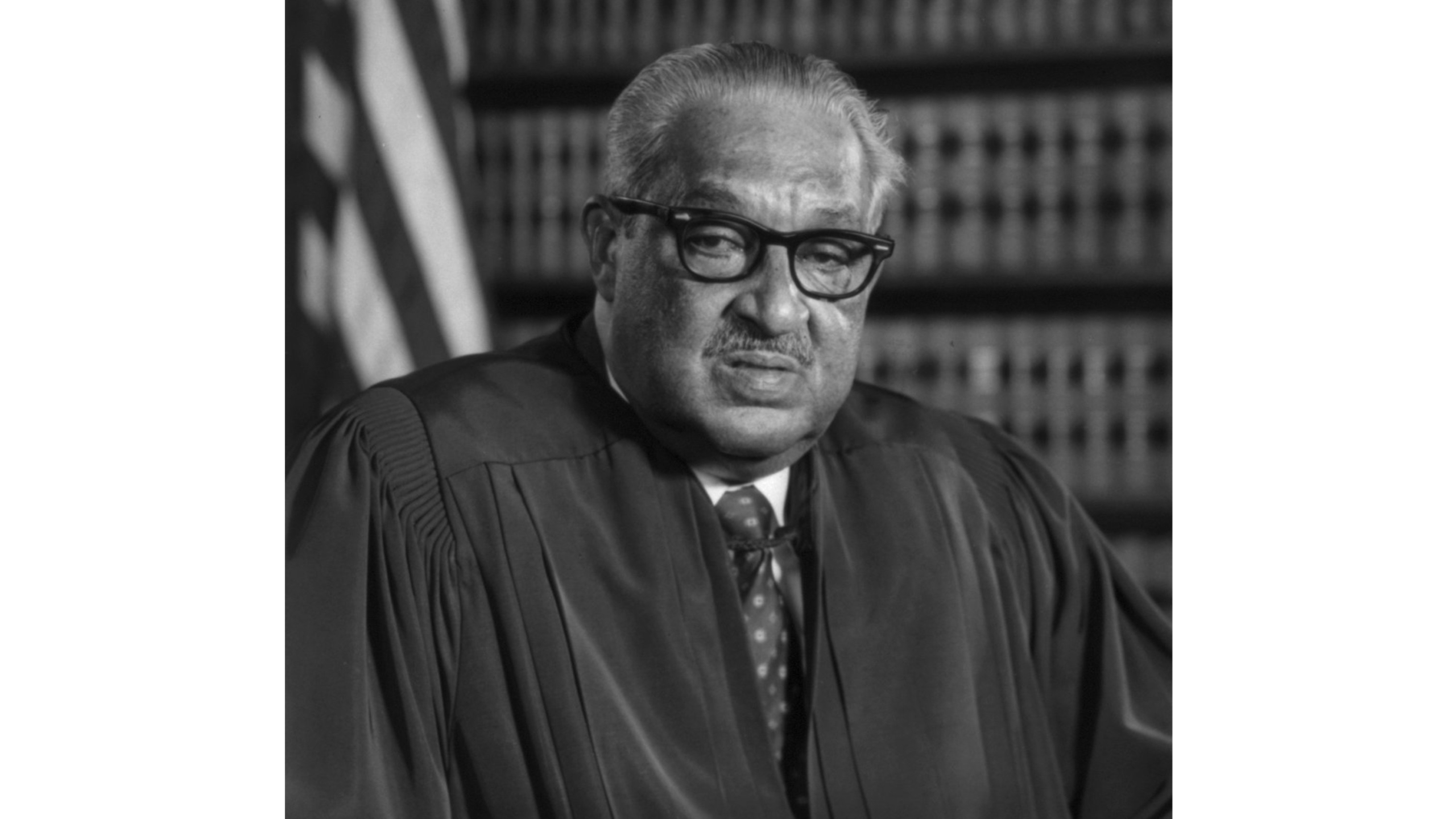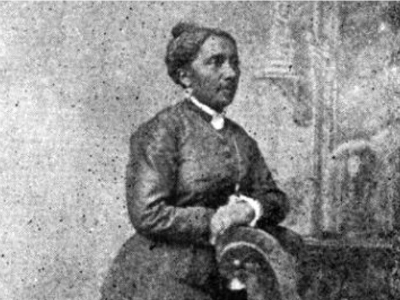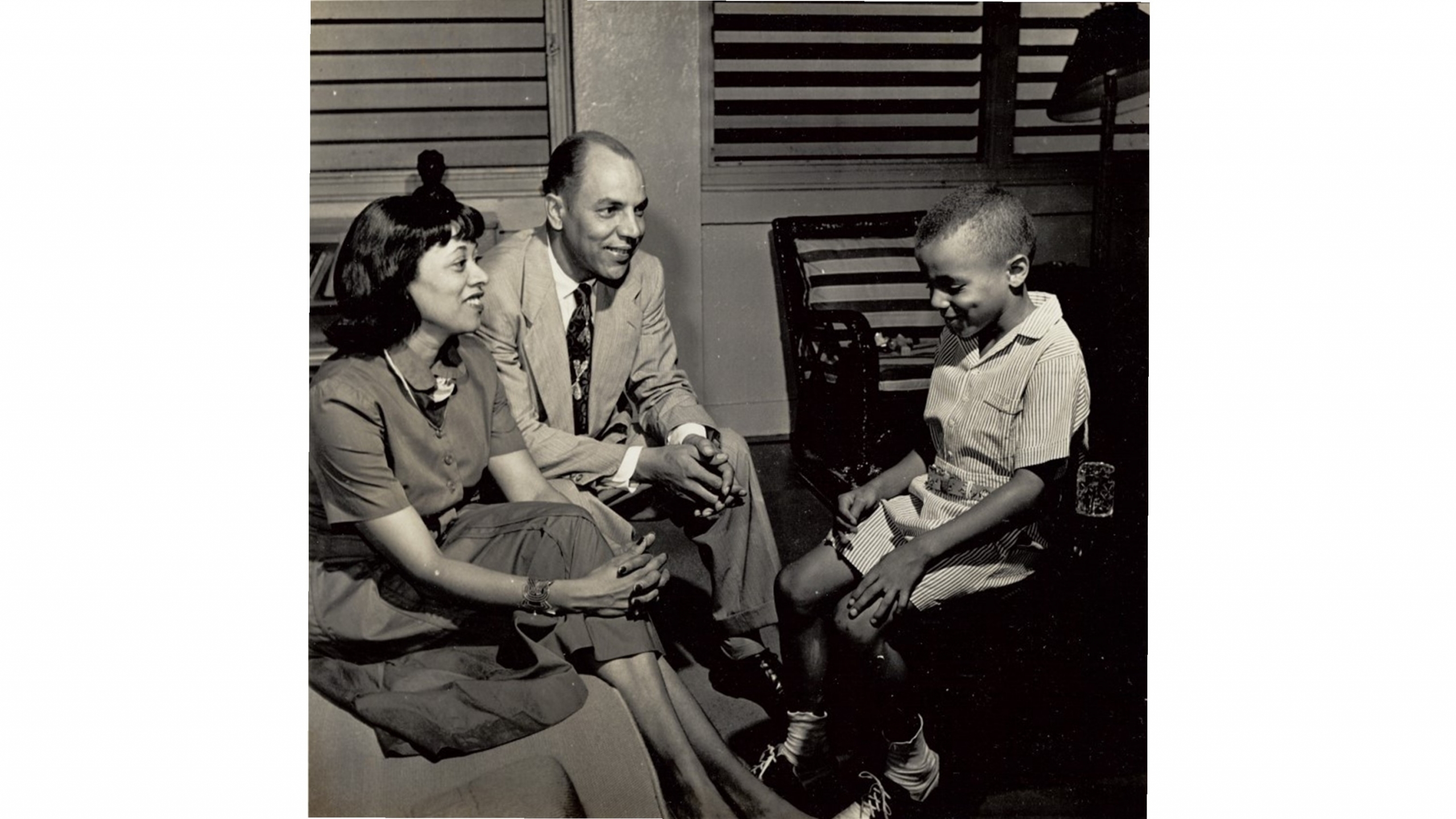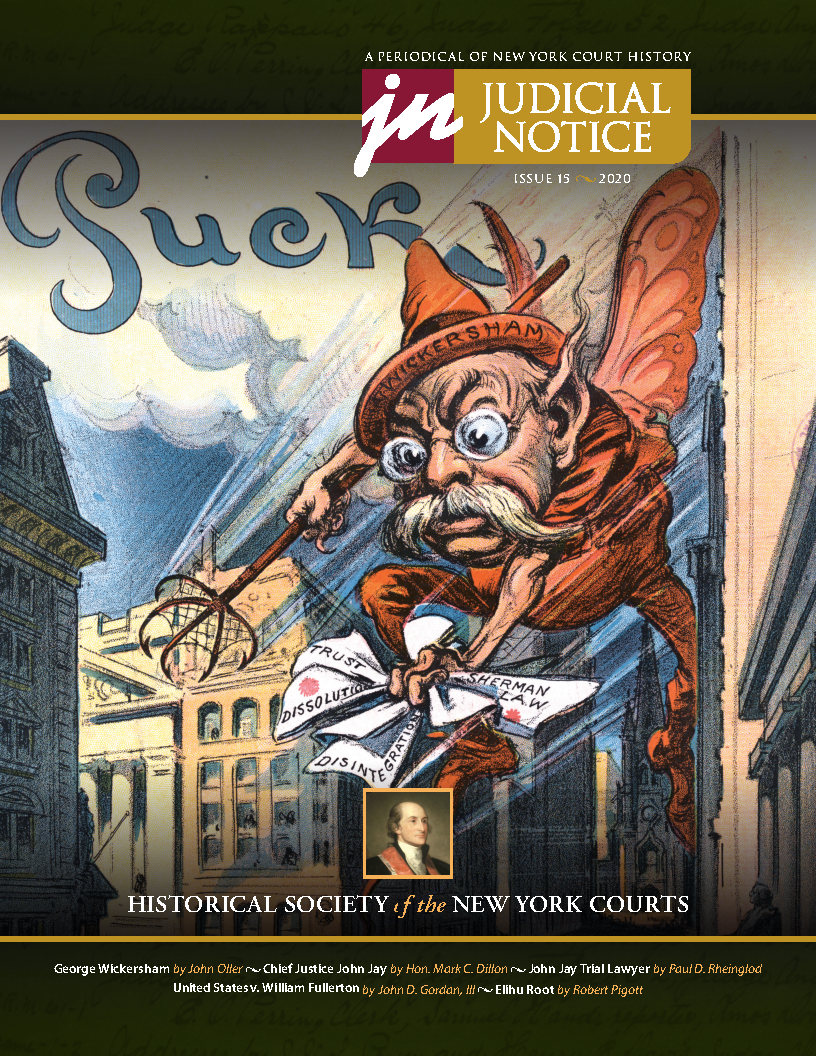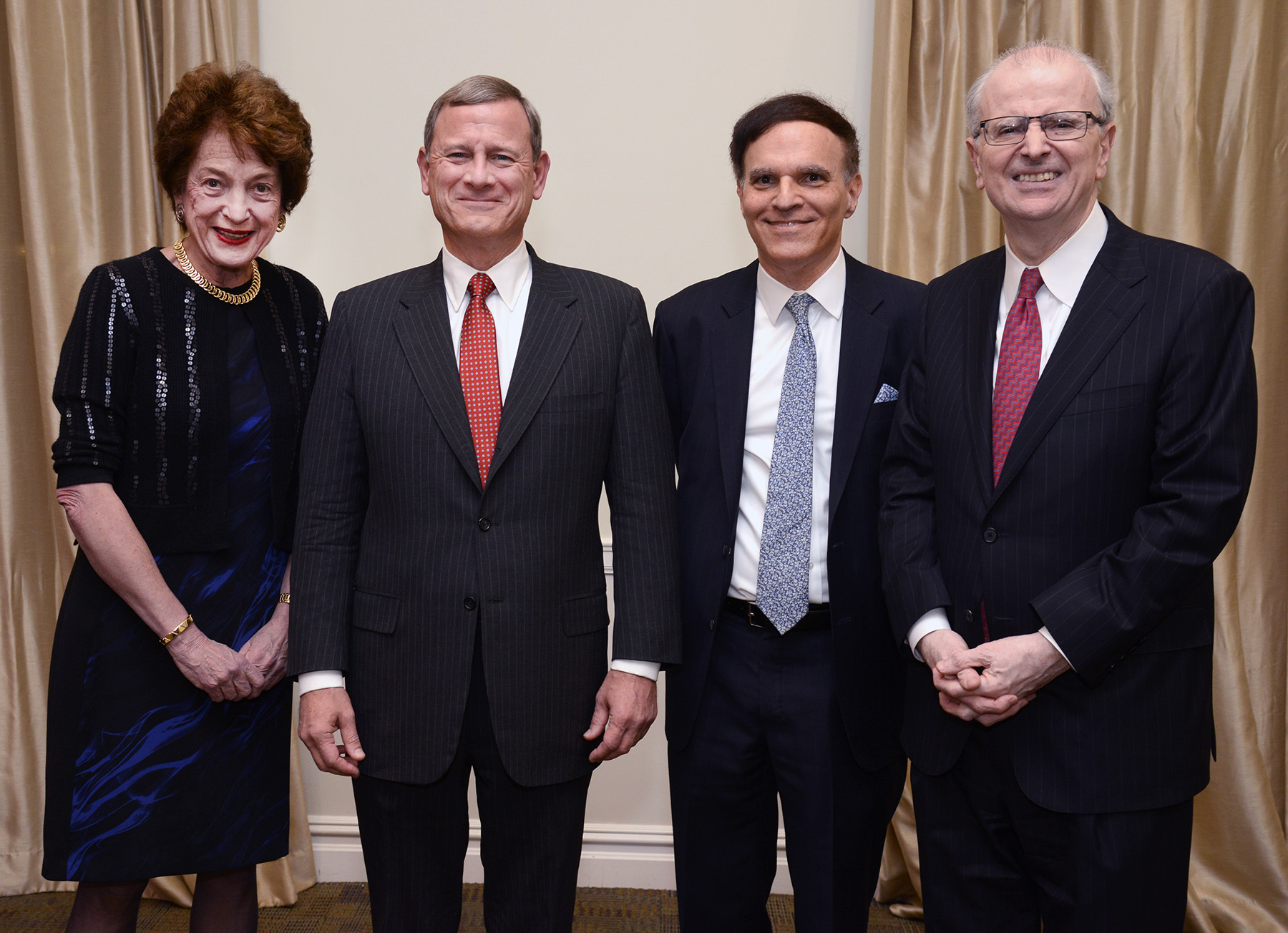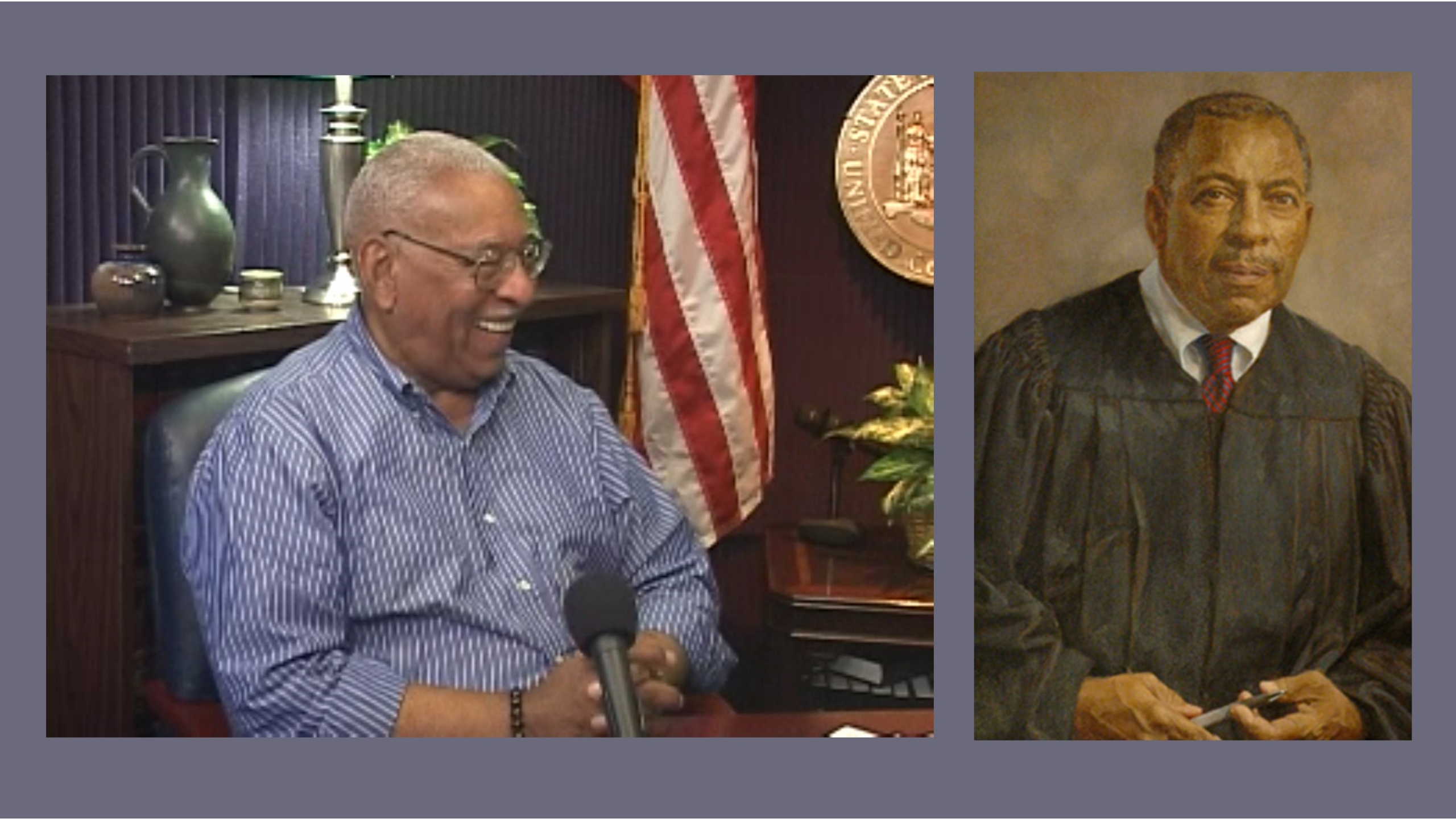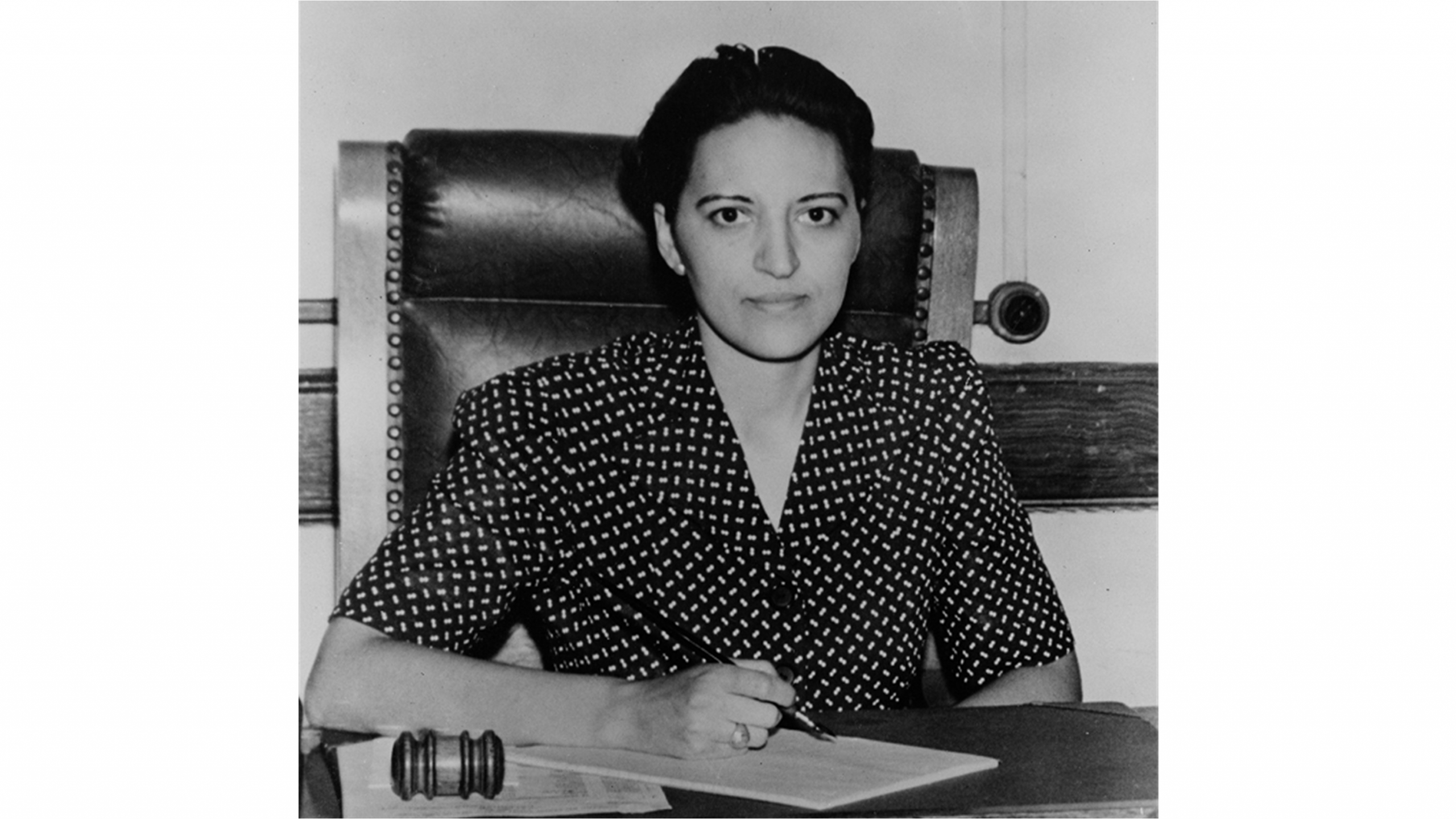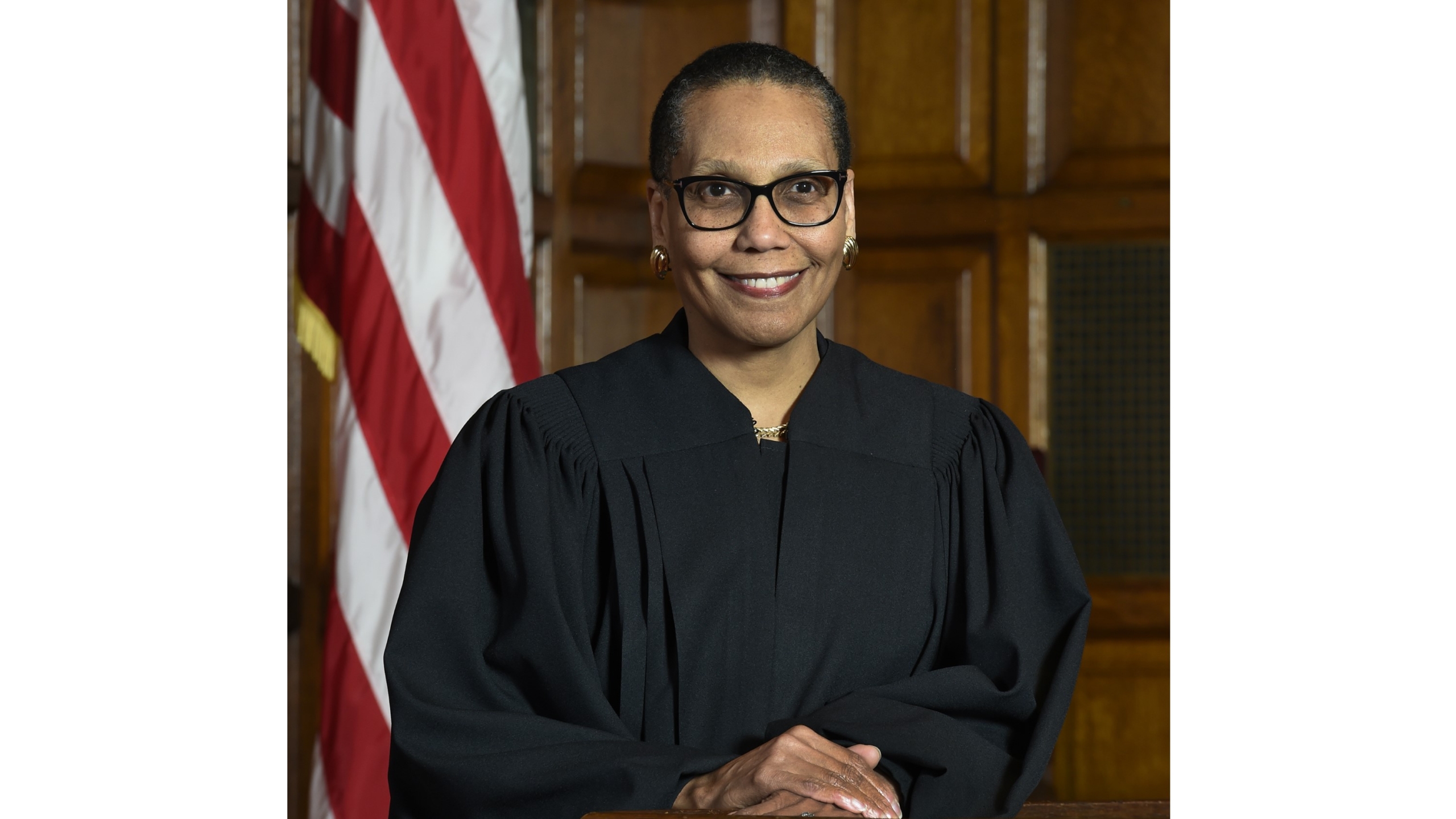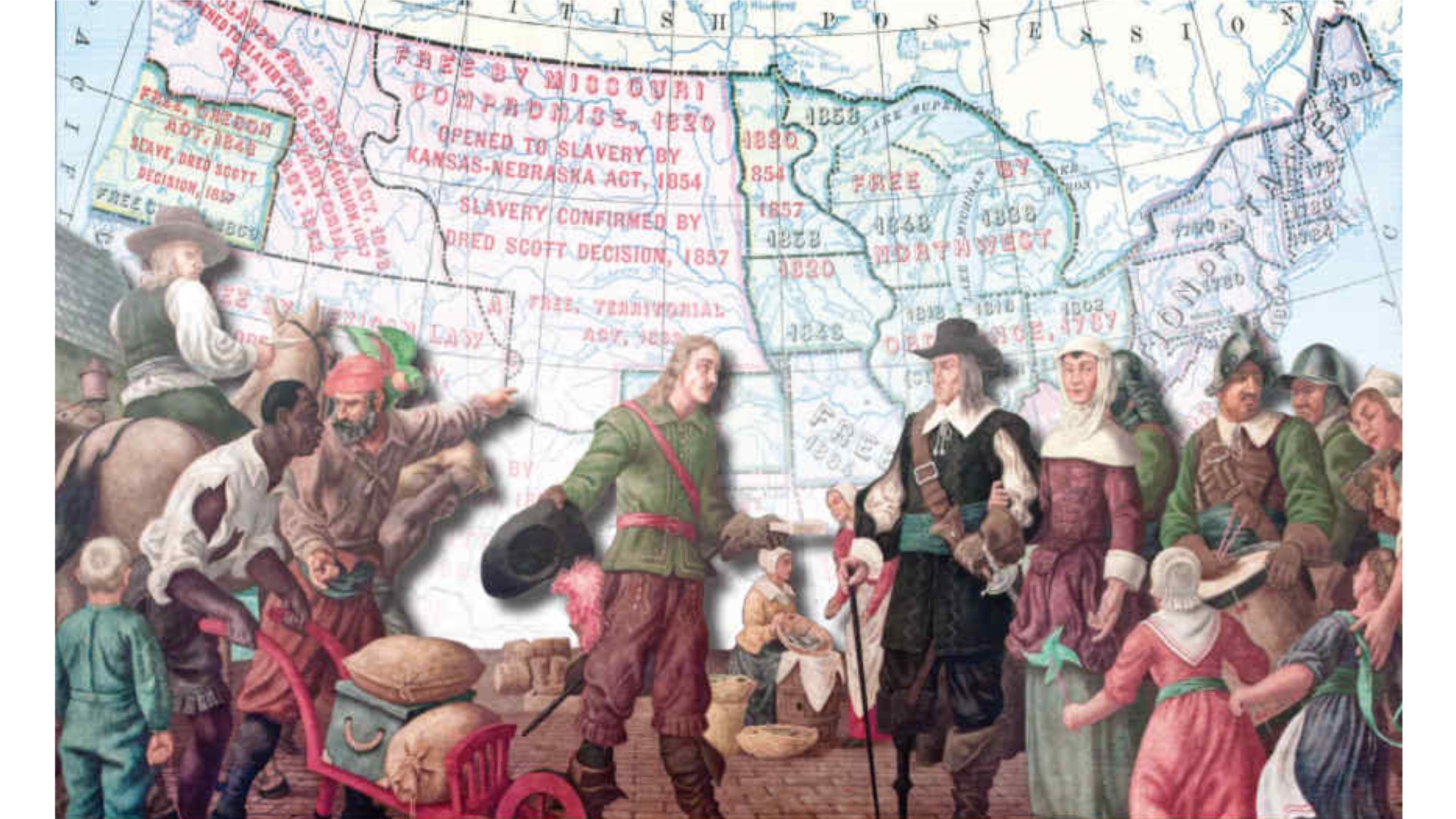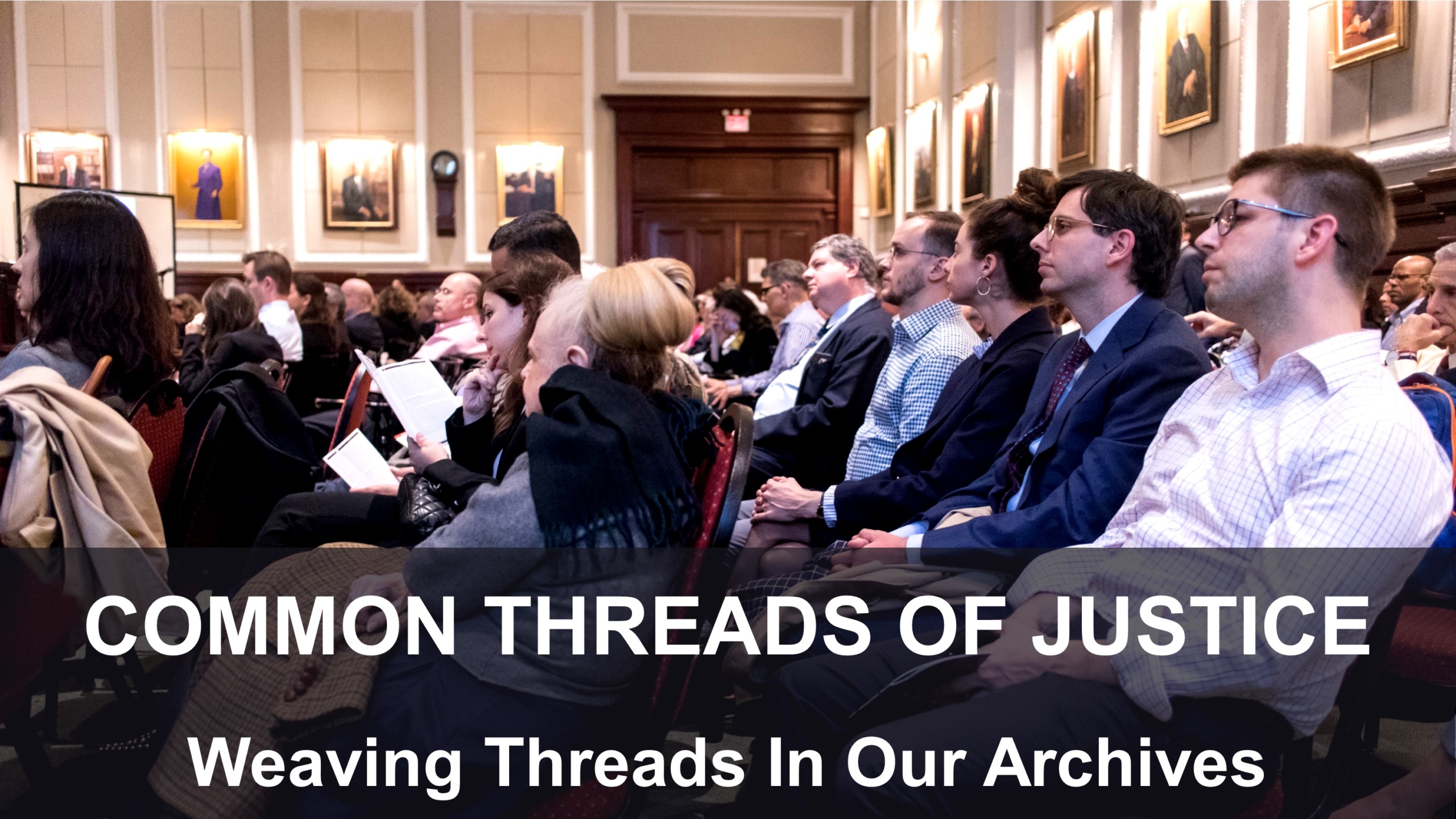Images from January, 2021 Calendar: Map depicting the status of slavery in the United States from 1775-1865, published 1893. Schomburg Center for Research in Black Culture, Jean Blackwell Hutson Research and Reference Division, The New York Public Library.
Arrival of mail in New Amsterdam by Karl R. Free, a mural at the Ariel Rios Federal Building in Washington, D.C. Note the depiction of the enslaved person, in tattered clothing without shoes, receiving instruction about the mail delivery. Photographs in the Carol M. Highsmith Archive, Library of Congress, Prints and Photographs Division.
We at the Historical Society of the New York Courts believe every month is Black history month, as the achievements and struggles of Black people are deeply woven into the fabric of the State and nation. As such, our 2021 calendar Race and Slavery in the New York Courts, 1625-1860 investigates the evolving relationship the state had with the draconian practice of slavery.
Each month this year, we will be highlighting a program, an oral history, or a story about the impact of Black people on the New York Courts, beginning in February in celebration of Black History Month.
Society President Emeritus Hon. Albert M. Rosenblatt writes in the opening of the 2021 calendar:
Our country is experiencing introspection into racial justice. As a historical society, it is right for us to examine this subject in the context of the New York State courts. The judiciary is but one of the three branches of government, and like the legislative and executive branches, it has influenced our political, social, economic, and cultural lives.
When it comes to the history of racial justice, and injustice, in our State, we look primarily to its antecedents, and for this we turn to the origins of slavery in New York, its evolution, and eventual abolition. The soil of what we now call New York had supported cultures eons before Europeans arrived here in the early 17th century. There are other important facets of racial justice in our history, but in this twelvemonth, we look at the roughly four centuries of our most recent history dealing with slavery. As I am completing a book on the Lemmon Slave Case, I can oblige by extrapolating some of my research and findings into a broader picture.
At the start, we might make an especially telling observation: New York has had slavery longer than not. Its trajectory has been toward freedom, but the line was neither swift nor straight. There were many fits and starts along the way.

